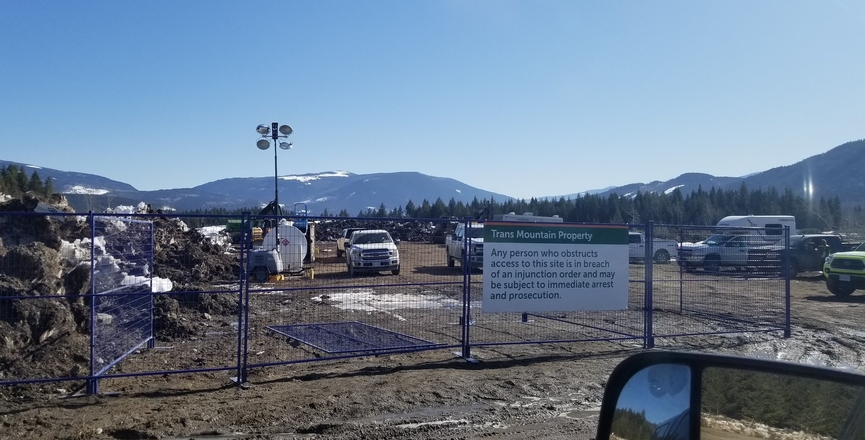A new article in the Monthly Review by two epidemiologists, a disease ecologist and a PhD in human geography, provides significant political and economic context to the coronavirus pandemic that has been missing in mainstream media coverage.
The article introduces the framework that the “structural origins” of COVID-19 include transnational corporate-driven agribusiness practices that lead to the deforestation of natural ecosystems that at one time would have controlled “wild” viruses.
While deforestation contributes to “pathogen virulence,” it’s the globalized supply chains that allow for its “subsequent transmission.”
The authors further suggest that the “deficits” (underfunding) of “public health and environmental sanitation,” at least in part driven by transnational corporations that push for lower taxes, privatization and deregulation, means that corporate profits are privatized (kept by them) and the costs of a pandemic are socialized (paid by us).
Here’s a 165-word excerpt from various sections of their 4,850-word argument:
“Other than describing the wild food market in the typical orientalism, little effort has been expended on the most obvious of questions. How did the exotic food sector arrive at a standing where it could sell its wares alongside more traditional livestock in the largest market in Wuhan?”
“Ecosystems in which such ‘wild’ viruses were in part controlled by the complexities of the tropical forest are being drastically streamlined by capital-led deforestation and, at the other end of periurban development, by deficits in public health and environmental sanitation.”
“If by its global expansion alone, commodity agriculture serves as both propulsion for and nexus through which pathogens of diverse origins migrate from the most remote reservoirs to the most international of population centers.”
“Context counts for pandemic infection, and current political structures that allow multinational agricultural enterprises to privatize profits while externalizing and socializing costs, must become subject to ‘code enforcement’ that reinternalizes those costs if truly mass-fatal pandemic disease is to be avoided in the near future.”
This also very much relates to climate change and the Canadian and Alberta governments subsidizing the fossil-fuel industry with billions of public dollars.
In 2014, research scientist Kris Murray stated, “With climate change expected to put increasing pressure on food security in Africa, food shortages will push more people to alternative food sources and consumption of bushmeat, like bats, will likely increase.”
He also noted, “Some of our computer modeling suggests that with climate change, in parts of central and western Africa, the range of some bat species could expand … this means increased contact between bats and humans.”
And earlier this year, Miles Mogulescu commented in Common Dreams, “While there’s no indication climate change played a role in this outbreak, which the World Health Organization calls a ‘public health emergency of international concern,’ the WHO has long warned climate change is likely to create, increase, or spread dangerous diseases.”
Mogulescu adds, “That means we need to take a hard look at the global economic and social consequences of the COVID-19 outbreak. They foreshadow the global crises we will all face because of climate change. These crises will demand a global and coordinated response, with an unprecedented level of international cooperation.”
The G20 recently met — by videoconferencing from their homes and offices — and agreed to inject $5 trillion to stimulate the economy given the pandemic.
The sad truth is that this money hasn’t been earmarked for a bold Green New Deal that could assist us in avoiding the next pandemic. The money is being used to prop up the current carbon-heavy economy that is killing us.
On March 31, Alberta Premier Jason Kenney announced that his government will buy a $1.5-billion equity stake in the Keystone XL tar sands pipeline, and provide a $6-billion loan guarantee so TC Energy is able to finance the construction costs.
If completed, the pipeline would carry 830,000 barrels of tar sands oil a day from Alberta into the United States.
In response, federal Minister of Natural Resources Seamus O’Regan stated, “The government of Canada has always been a strong supporter of Keystone XL. The project increases our market access — safely, responsibly, and sustainably — and fits within Canada’s climate plan.”
It should not be forgotten at this time that the Trudeau government purchased the existing Trans Mountain tar sands pipeline for $4.5 billion in May 2018 and committed billions more to expand that pipeline’s capacity to 890,000 barrels per day (and that the man camps central to this construction continue despite the pandemic).
And just last month, The Globe and Mail reported, “One senior Alberta source said the province is expecting Ottawa to provide $15-billion in relief to an industry that has been hammered by the COVID-19 crisis and the price war between Saudi Arabia and Russia that has cratered oil prices and energy-company stocks.”
Big ideas and a bold resistance are needed even more now to find our way to a better, more sustainable future. Enough with this old system that is profitable for a few and endangers all.
Brent Patterson is a political activist and writer.
Image: Kanahus Manuel/Twitter



